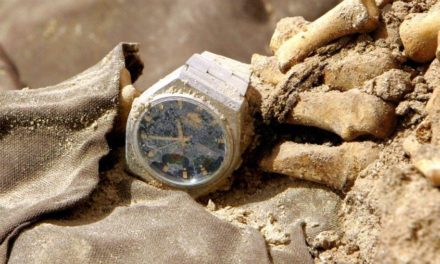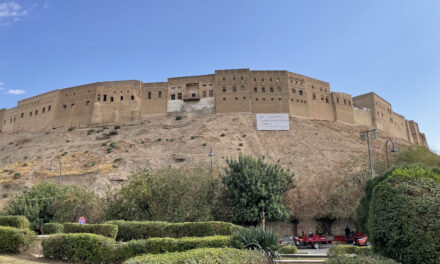More than 100 days have passed since Prime Minister Muhammad al-Sudani took office. Sudani is the Coordination Framework’s nominee, and his premiership required the buy-in of other parties, like the Kurdistan Democratic Party (KDP) and the Patriotic Union of Kurdistan (PUK). With regards to the Kurdish parties, agreements were made regarding cabinet positions and on the promise of addressing long-term differences between the federal government in Baghdad and the Kurdistan Regional Government (KRG) in Erbil.
One of the biggest disputes between Baghdad and Erbil is the administration of oil sales. Resolving this issue requires passing a hydrocarbon law. This will be difficult as there continues to be different interpretations of the Iraqi constitution, despite the Federal Supreme Court issuing a ruling that the KRG’s oil exports are illegal. The Court’s decision has complicated matters further, as there was an ambitious timeline to pass a hydrocarbon law within six months of a new government formed. More than three months have passed and there is still no draft.
Another long-standing issue between Baghdad and Erbil are the disputed territories. In particular, the situation in Sinjar. This issue has been ongoing for many years, spanning multiple administrations and continues to be unresolved despite the Sinjar Agreement signed between Baghdad and Erbil in late 2020. Prime Minister Sudani promised to rebuild the town and assist displaced Yazidis. How successful Sudani will be remains to be seen, but the Ministry of Migration and Displacement announced on February 14, 2023 that 194 people have returned to Sinjar.
The disputed territories also pose the challenge of a security vacuum, between federal Iraqi Security Forces and the regional Peshmerga forces. This vacuum has been exploited at times by Da’ish sleeper cells that linger. Joint ISF-Peshmerga brigades are required to fill this vacuum. There have been a lot of security meetings over this issue, but one point that remains is the payment of such brigades. This is part of the bigger issue of public sector payments, which also includes the Peshmerga, who continue to require support from the United States. Securing the safety of all citizens should entice both governments to find a common solution.
The issue of public sector salaries in Iraqi Kurdistan is a critical one. Outside of the security sector, many continue to receive their salaries irregularly, unlike federal public sector employees who receive their salary every month. Both the federal government and the KRG have accused one another of being the cause of the delay. Baghdad requests that the KRG submit details of oil sales in order to send share of salaries and the KRG refuses and insists it is Baghdad’s responsibility to pay public sector employees regardless. This issue pertains to the 2023 federal budget which continues to be absent, and it is not clear whether the KRG public sector salaries will be included. Finding a resolution to the issue is vital, which is why KRG President Nechirvan Barzani has visited Baghdad multiple times to discuss this matter.
These are major challenges for Prime Minister Sudani to resolve with the KRG, which is more difficult to resolve with the internal divisions between the two ruling parties in Iraqi Kurdistan. Differences between the KDP and PUK has stopped any possibility of a unified Kurdish front in Baghdad, creating multiple power centres and conflicting demands from Kurdish parties. Meanwhile, Prime Minister Sudani must deal with keeping multiple parties within his own coalition happy.
The new federal government is faced with many long-term challenges in Iraqi Kurdistan as mentioned but the political infighting also includes the rest of Iraq. There is the threat of the Sadrist Movement protesting at any moment and national emergencies like the value of the Iraqi dinar and inflation that effect the whole country. So far Sudani has governed by consensus by keeping parties with many diverging interests satisfied. How long he can maintain this remains to be seen as more difficult issues come to the fore and serious decisions will need to be made.

Sarawan Hama Salih
Sarawan Hama Salih is a researcher from Iraqi Kurdistan focusing on Iraqi affairs.










